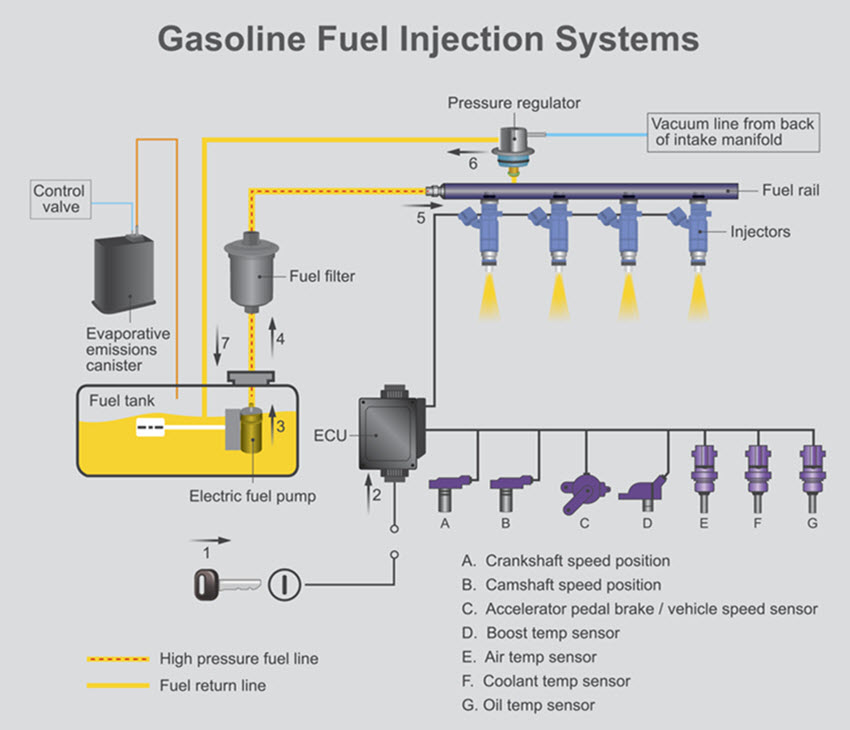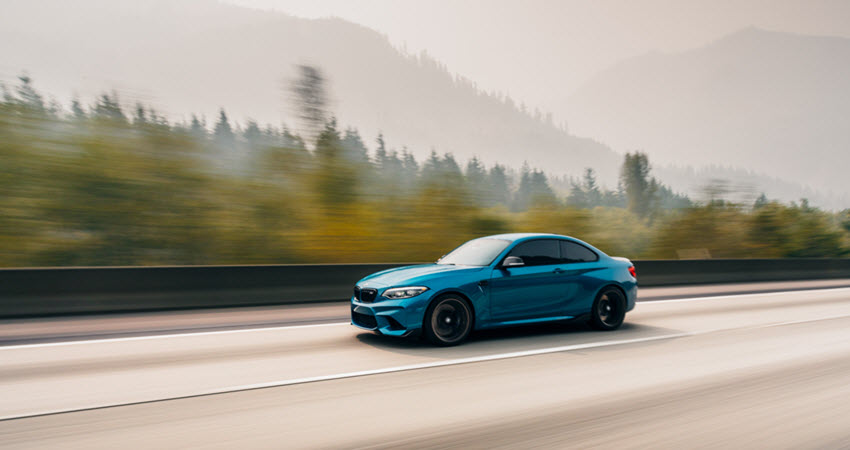A small, often overlooked component can malfunction and affect your BMW’s performance. The fuel regulator must work as designed for your BMW to get the most out of your engine. Understanding how this component works and recognizing the signs of a failing fuel regulator can save you from costly repairs and keep your BMW running smoothly for years to come. Let’s find out what this component does, how to spot the problem, and where to go when facing this challenge.
The Importance of the Fuel Pressure Regulator
The primary function of a fuel pressure regulator (FPR) is to maintain a consistent and appropriate fuel pressure within the fuel system. This is essential for the proper operation of the engine to give you that horsepower you expect, especially when you need it. Different engine operating conditions require different levels of fuel pressure, and the regulator ensures that the pressure is adjusted accordingly.
How Does a Fuel Pressure Regulator Work?
A fuel pressure regulator operates through a straightforward but effective mechanism. The regulator monitors the fuel pressure within the fuel rail, which is the pipe that delivers fuel to the engine. It accomplishes this through the use of a diaphragm or a valve mechanism. The regulator has a reference pressure source, often connected to the intake manifold or another source of vacuum or pressure. This reference pressure is on one side of the diaphragm or valve, while the fuel pressure from the fuel rail is on the other side.
The diaphragm responds to the difference in pressure between the fuel rail and the reference pressure source. If the fuel pressure in the rail is too high, the diaphragm or valve will open, allowing excess fuel to return to the fuel tank or another part of the fuel system. As the diaphragm or valve opens or closes, it controls the flow of fuel to the engine. When the pressure is too low, the regulator restricts the flow, and when the pressure is too high, it allows more fuel to return, maintaining the desired fuel pressure.
How To Tell If Fuel Pressure Regulator Is Bad
Poor Fuel Economy
A healthy engine requires a precise mixture of air and fuel for efficient combustion. When the FPR fails, it may allow an excessive amount of fuel into the engine, making the air-fuel mixture too rich. This results in incomplete combustion, wasted fuel, and decreased fuel efficiency. The engine ends up burning more fuel to produce the same amount of power, leading to poor fuel economy.
Black Smoke from the Exhaust
A failing FPR often leads to an overly rich air-to-fuel mixture. This excess fuel cannot be fully burned during the combustion process. Instead, it exits the engine as partially burned or unburned hydrocarbons. These unburned hydrocarbons create black smoke when they pass through the exhaust system, indicating an inefficient combustion process. In essence, your engine is burning more fuel than it can efficiently use.
Rough Idling
At idle, your BMW engine operates at a minimal power output, and the air-fuel mixture needs to be precisely balanced for smooth operation. A malfunctioning regulator can disrupt this balance by allowing too much fuel into the engine. This imbalance leads to irregular and unstable idling, and in severe cases, it may cause the engine to stall. Rough idling can make your BMW unpleasant to drive and could be a safety concern, especially in traffic or at intersections.
Check Engine Light
Modern BMWs are equipped with onboard diagnostics that monitor various systems, including the fuel system. When the fuel regulator malfunctions and disrupts the fuel delivery, the BMW’s computer will detect an anomaly and trigger the check light. The light serves as an early warning system, indicating that there is a problem in the fuel system that needs attention. Diagnostic codes can be read to pinpoint the exact issue, helping mechanics identify the source of the problem more efficiently.

Visit Our Trusted BMW Fuel System Repair Expert in Santa Cruz
At Hayes European, our team of technicians is highly skilled and experienced in diagnosing and fixing BMW FPR failures. What sets us apart is our long-standing reputation for providing top-notch service in the Santa Cruz, Aptos, Soquel, and Capitola areas of California. Our commitment to quality and customer satisfaction has made us the go-to choice for BMW owners in the region. We take pride in our ability to address a wide range of BMW maintenance and repair needs, and the fuel pressure regulator is just one of the many components we specialize in.
To maintain your BMW’s optimal performance and ensure it continues to run smoothly, we encourage you not to delay. Reach out to us now to schedule an appointment with our trusted team of experts.
* Blue BMW M3 Car image credit goes to: Brandon Woyshnis.
 Mon-Fri: 8:00AM-5:30PM
Mon-Fri: 8:00AM-5:30PM 1125 17th Ave Santa Cruz, CA 95062
1125 17th Ave Santa Cruz, CA 95062
